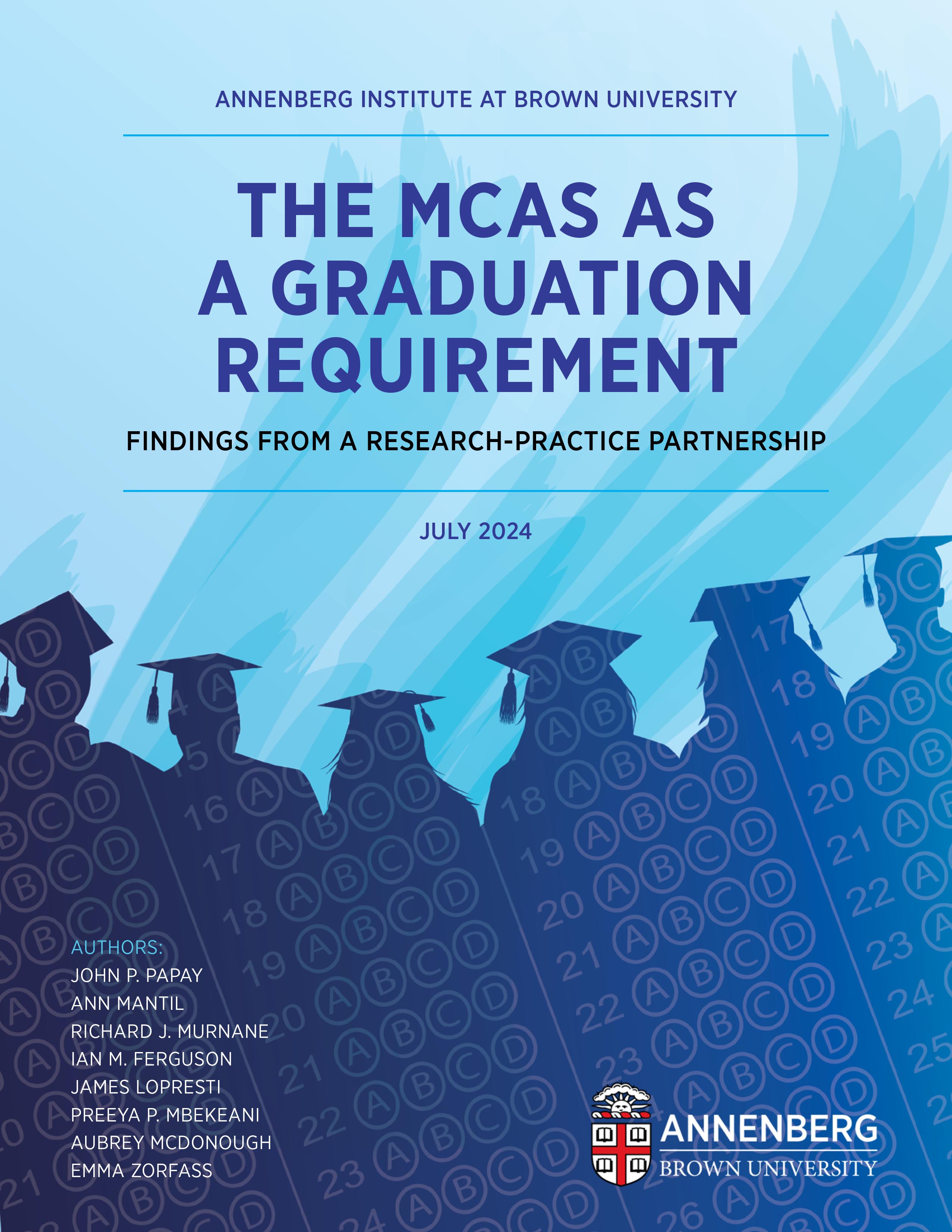Across Massachusetts, legislators, policymakers, educators, families, and communities are engaged in important conversations about whether to continue using student performance on the MCAS tests as part of the state’s high-school graduation requirements. These are part of broader discussions about the best ways to provide all students with the knowledge, skills, and capacities they need to succeed when they leave high school and enter college or the labor force.
Unlike most states, Massachusetts does not specify a set of courses that students must pass to graduate from high school. Instead, it relies on scores on tests of mathematics, English language arts, and science as a central part of the state’s “competency determination” (CD) process. Students take these tests for the first time early in high school, and they are targeted to 10th grade content standards. Students who do not meet the CD testing standard can retake the tests repeatedly and can appeal if they do not pass on retest.
Nationally, there is mounting evidence that we need high standards for all students and, with appropriate supports, almost all students can meet these standards. Lowering academic expectations for students exacerbates inequality. However, there are clear disagreements over the best ways to ensure that educators raise expectations and how to provide the requisite supports, and open questions about whether the test-based competency determination policy accomplishes this goal.
One thing that is sometimes missing from these conversations is a grounding in the available evidence. In this document, we synthesize lessons drawn from our 15-plus years of research on educational opportunity and state testing in Massachusetts.

